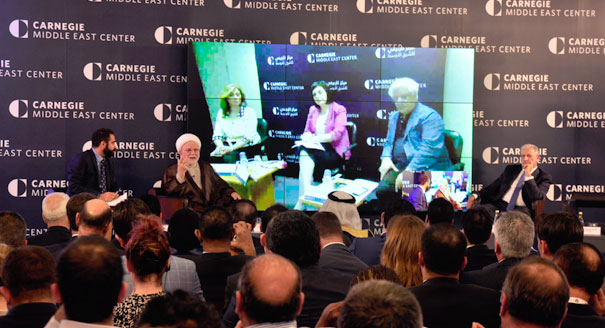Registration
You will receive an email confirming your registration.
Two years after the self-proclaimed Islamic State (IS) gained control of Mosul, the prospects for liberation and the city’s future remain uncertain. Whilst regional and international powers are united against IS, two-thirds of Mosul’s residents continue to support or express indifference to their occupiers. How long can IS maintain control? Do the reasons for the city’s fall still hold today? What has life been like under a so-called caliphate? What are prospects for Mosul should IS lose control of the city? Leading Iraqi actors in the liberation effort will address these questions and discuss challenges ahead.
Carnegie Middle East Center in Beirut and the American University of Kurdistan in Duhok brought together a joint panel of academics and experts by videoconference on the future of Mosul. Carnegie's Renad Mansour moderated from Iraq, and Maha Yahya moderated the conversation from Lebanon.
Faleh Abdul Jabbar
Faleh Abdul Jabbar is the head of the Iraq Institute for Strategic Studies in Beirut.
Sheikh Khaled Ahmad Sofuk Al-Jarba
Sheikh Khaled Ahmad Sofuk Al-Jarba is a military leader of the Shammar tribe in Mosul.
Muhammad Taqi Ali Al-Mawla
Muhammad Taqi Ali Al-Mawla is a member of parliament from Nineveh for the Islamic Supreme Council of Iraq.
Athil Al-Nujaifi
Athil Al-Nujaifi is an Iraqi politician who served as the governor of Nineveh Province until the takeover by Islamic State forces.
Renad Mansour
Renad Mansour is El-Erian fellow at the Carnegie Middle East Center in Beirut.
Hiba Nizar
Hiba Nizar is a journalist who recently fled Mosul, where she spent a year living under Islamic State occupation.
Maha Yahya
Maha Yahya is senior associate and director of Carnegie Middle East Center in Beirut.
